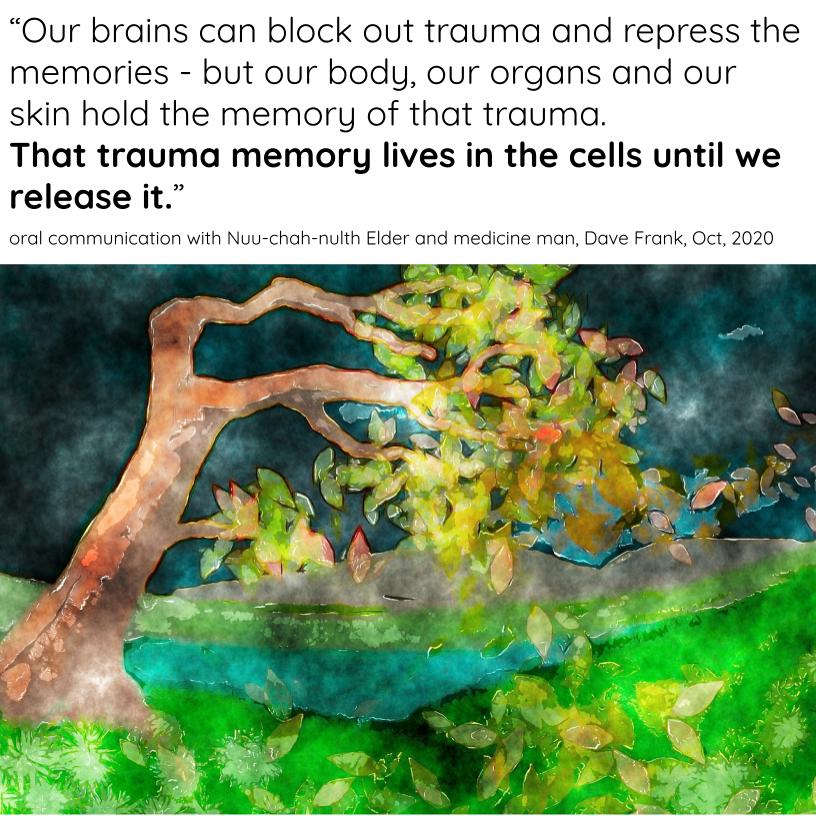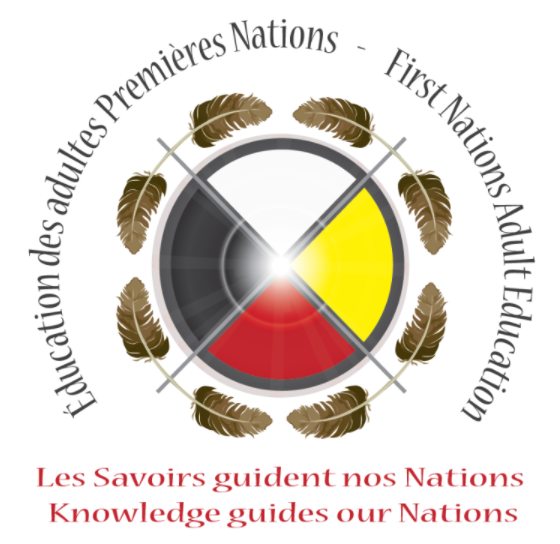General outline. (8 hours)
- What is trauma? Personal, community multi-generational trauma?
- What is PTSD: role of sympathetic and parasympathetic systems
- Unresolved trauma and observed behaviours in our communities.
- Dealing with personal traumas (support services available)
- Mental illness
- Connection to Traditional Teachings
These are suggested resources for teaching about trauma and emotion. None of this is prescribed and you are encouraged to bring in as much local knowledge and resources as you can.
“Our brains are so smart. Our brains can block out trauma and repress the memories – but our body, our organs and our skin hold the memory of that trauma. That trauma memory lives in the cells until we release it”
(oral communication with Nuu-chah-nulth Elder and medicine man, Dave Frank, October, 2020. Cited in Unpacking Trauma and trauma-theory through an Indigenous lens by Jessica Barudin).
The Impact of Intergenerational Trauma.
A clear, scientific explanation of Intergenerational Trauma and its impacts by Jasmine Peterson, a Psychological Associate at Sullivan + Associates Clinical Psychology.
The Psychology of Post Traumatic Stress Disorder (PTSD).
Joelle Rabow Maletis describes the science behind post-traumatic stress disorder, PTSD, its symptoms and how the brain reacts to trauma.
How Childhood Trauma Affects Health Across a Lifetime
YouTube description: “Childhood trauma isn’t something you just get over as you grow up. Pediatrician Nadine Burke Harris explains that the repeated stress of abuse, neglect and parents struggling with mental health or substance abuse issues has real, tangible effects on the development of the brain. This unfolds across a lifetime, to the point where those who’ve experienced high levels of trauma are at triple the risk for heart disease and lung cancer. An impassioned plea for pediatric medicine to confront the prevention and treatment of trauma, head-on.”
Coping with Trauma and Triggers
Coping skills is a three-part series on coping with different aspects of trauma. It is presented by Gabrielle Fayant, who is a Michif woman residing on traditional Algonquin territory. Find out more about Gabrielle Fayant here.
Unpacking Trauma and Trauma Theory through an Indigenous Lens by Jessica Barudin
This article describes different types of trauma and how they may affect you.
Possible Journal Prompts
Journaling is personal and can be related to any thoughts or feelings that come up as a result of this unit.
It can also be a good place to start to explore questions related to the end of course assignment for Emotional Wellness.
Here is a journaling prompt, if you want one.
- What are your thoughts about the quote, “Our brains are so smart. Our brains can block out trauma and repress the memories – but our body, our organs and our skin hold the memory of that trauma. That trauma memory lives in the cells until we release it”
- How does it relate to your study of trauma & emotion?

